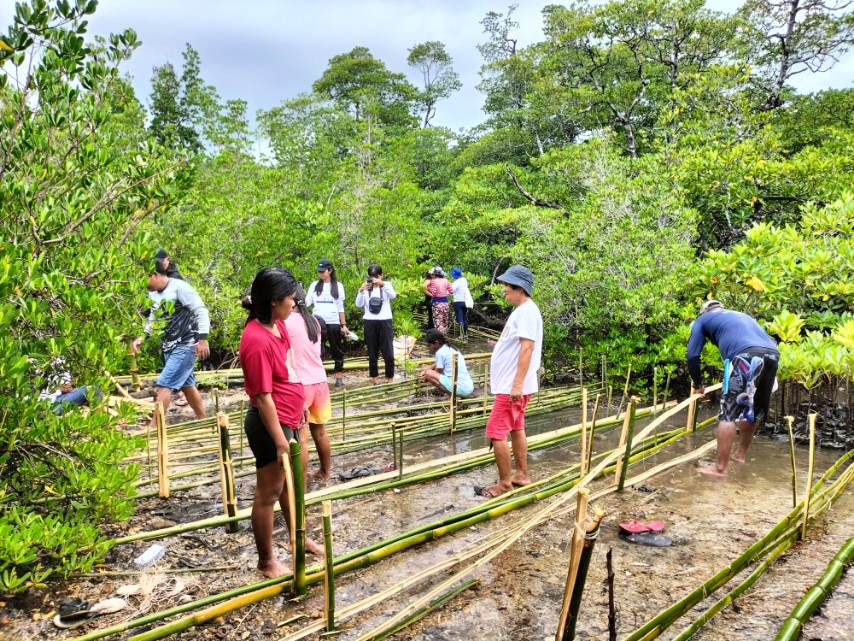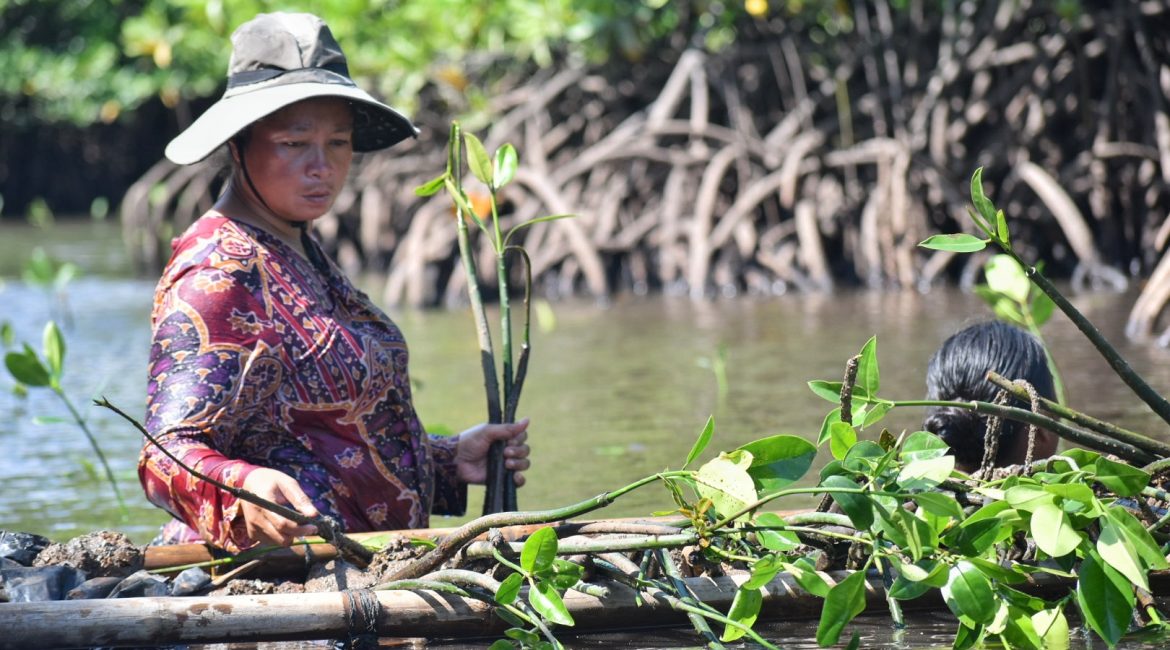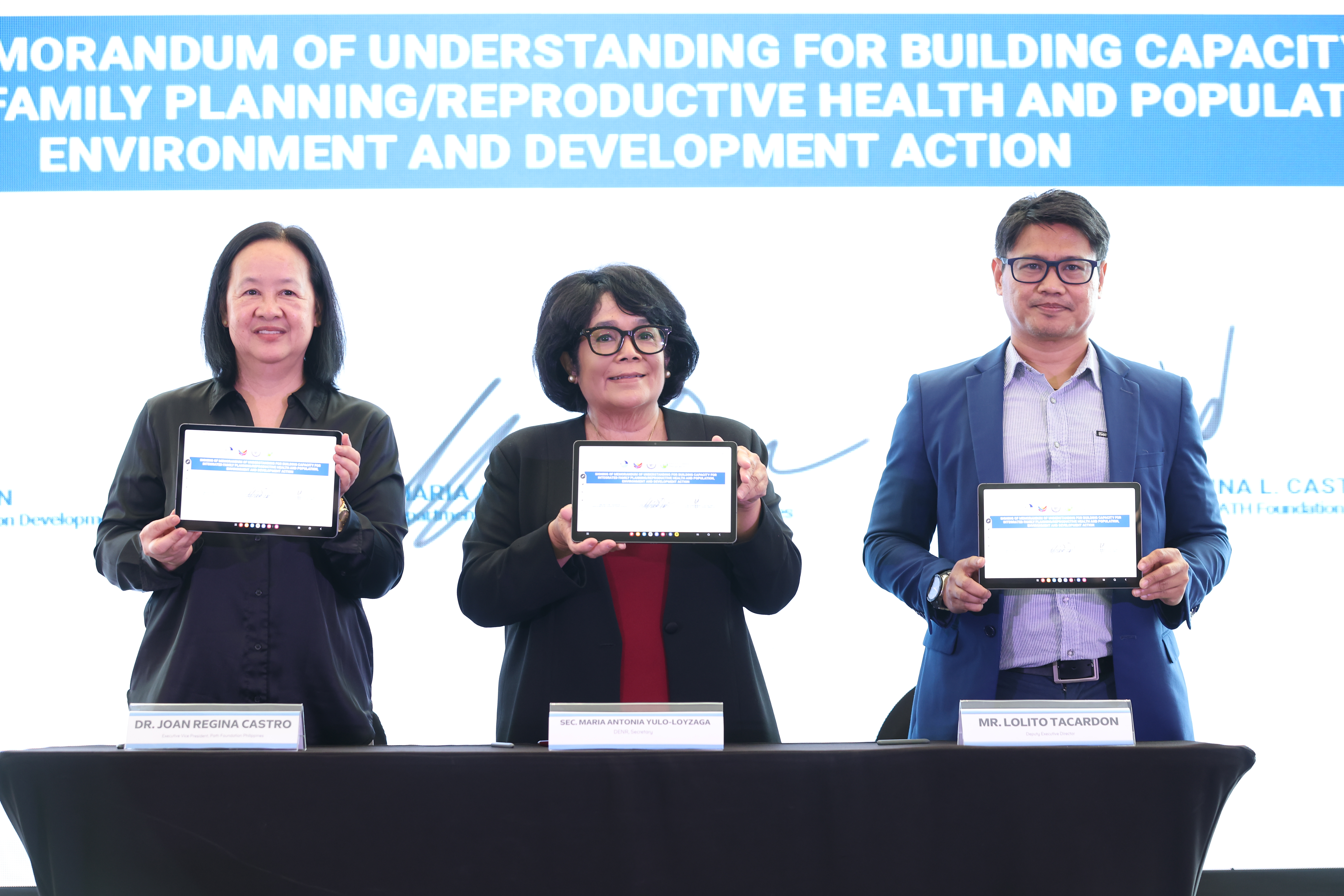Women fisherfolk spearhead the activities of a mangrove forest conservation project, including the collection of propagules and the maintenance and monitoring of seedlings. These community members, who were trained as peer educators, are now empowered leader-advocates in their community.
In an effort to amplify citizen-led marine conservation advocacy in Palawan, the SEApherd Project, implemented by the PATH Foundation Philippines, Inc. (PFPI), will conduct a peer educators’ summit entitled Arampangan y ang Peer Educators: Puso para sa Karagatan (A Convergence of Conservation Champions: I Love the Ocean) on May 29–30, 2024, at the A and A Plaza Hotel, in Puerto Princesa City, Palawan.
This initiative, under the USAID INSPIRE Project, aims to galvanize community-based education and advocacy among coastal stakeholders, reinforcing the vital role of citizen-led efforts in safeguarding marine biodiversity.
Since 2022, the SEApherd Project has trained 133 community eco-warriors and peer educators in key marine biodiversity areas in northern Palawan and the Calamianes Island Group (CIG) bioregions. These educators, representing diverse groups such as women, indigenous peoples, fisherfolk, youth, and local government officials, have become local “Conservation Champions,” promoting sustainable fisheries management.
Community convergence
Dominador Peñaranda Jr., a fisher, an eco-warrior and a peer educator from El Nido, Palawan, underscores the importance of grassroots involvement in conserving and protecting the marine resources of Palawan, considered the Philippines’ “last frontier.” Peñaranda is the chairperson of his town’s Municipal Fisheries and Aquatic Resources Management Council (MFARMC).
“The role of coastal stakeholders, particularly communities dependent on the ocean for livelihood, is indispensable in strengthening marine conservation efforts through advocacy and education, especially in the context of the changing climate,” Peñaranda said.
The convergence event will bring together about 100 participants, including peer educators, government representatives and project partners, to share best practices, enhance capacities, and co-create sustainability action plans. The summit will include sessions on gender, leadership, community mobilization and advocacy, along with self-awareness exercises and interactive small-group discussions.
“The need for inter-sectoral, inter-generational, and multi-stakeholder collaboration is crucial to advance peer education and help lead to marine conservation outcomes,” Peñaranda added. This sentiment echoes the event’s objective of uniting peer educators as a formidable constituency advocating for responsible behaviors and practices in utilizing natural resources.
Commitment to change
A highlight of the event will be a symbolic human formation advocating against Illegal, Unreported, and Unregulated (IUU) fishing, demonstrating collective commitment to marine conservation. The activity, which will be conducted in Barangay Tagburos, Puerto Princesa City on May 30, aims to raise awareness and inspire action within and beyond the community.
As the summit will also serve as a platform for knowledge sharing and the synthesis of best practices, the organizers hope that the community of champions will be able to identify ways to scale up peer education as a means of addressing broader development concerns such as population growth and its impact on ecosystems, health and food security, among others.
Dr. Joan Castro, Executive Vice President of PFPI, underscores the significance of the event, especially in culminating the Month of the Ocean celebration.
“As the community of champions converges in Puerto Princesa City, we hope that the event will not only further inspire, empower and elevate the capacities of our local conservation leaders but also generate the momentum to sustain their commitment to advocate for a healthy populace and a sustainable future and be catalysts of change in their respective communities and multiply themselves in other individuals,” Dr. Castro said.




